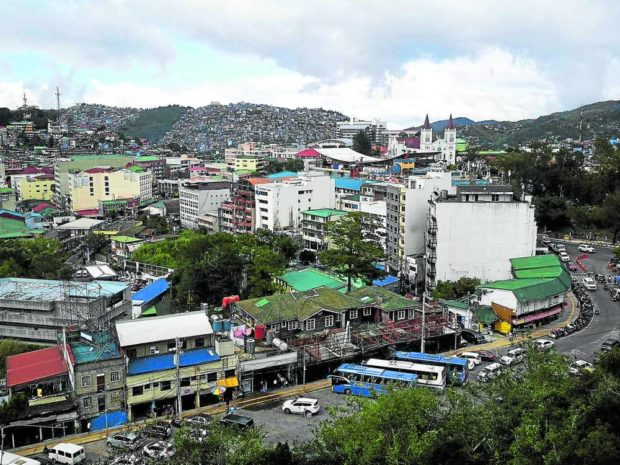Baguio business owners hit high taxes amid pandemic
BAGUIO CITY, Benguet, Philippines — Business owners here on Monday asked the city council to reexamine the impact of the prevailing property tax ordinance that took effect at the onset of the COVID-19 pandemic, saying it was imposing “excessive” taxes while businesses were struggling to recover.
Baguio Country Club (BCC) and the city’s hotel owners wanted the city council to change or repeal Ordinance No. 16, series of 2020, which saw their taxes shooting up by as much as 4,000 percent.
BCC officials said the premiere accommodation facility used to pay P4 million in property taxes, but the 2020 tax law had raised that to P11 million. The figure excludes the real property tax covering its golf course.
Mountain Lodge, one of the city’s oldest hotels, is being charged P259,000 this year from what used to be P65,000, according to its owner, Jeannine McCann Chan.
“There is nothing equitable in what has been done (to us by this ordinance),” she said during the council’s regular session.
Article continues after this advertisementThis was the second time the council had deliberated on the complaints of business owners about Ordinance No. 16, which updated Baguio’s fair market values after 26 years.
Article continues after this advertisementOn staggered basis
The law was enforced on a staggered basis, starting with the collection of only 70 percent in the 2020 tax year, and the full 100 percent for the 2021 tax period.
A corresponding reduction in assessment values (the basis for computing property taxes) was also implemented to cushion the impact of the ordinance on 62,398 taxable properties, including 60,000 family homes and about 1,555 business properties in the summer capital.
But according to lawyer Christine Angelica Elveña, BCC counsel, “the highest possible increase in fair market values would be 2,300 percent for the residential zone.”
She said this was BCC’s conclusion after examining the effect of Ordinance No. 16 on a sample of Baguio properties.The highest rate from the sample of commercial properties was 4,778 percent, Elveña said during the session.
BCC’s property value itself increased by 2,139 percent, resulting in a 390-percent hike in taxes.The business group returned to the council this week after negotiations with a technical working group (TWG) that was formed by Mayor Benjamin Magalong to resolve the matter failed to reach a compromise.Elveña said the business sector proposed a 300-percent hike across the board, but City Assessor Maria Almaya Addawe said the TWG rejected the suggestion.
Crucial to recovery
At a press briefing on Jan. 11, Magalong said the property tax hike, while controversial, had helped stabilize the city’s finances as the local economy started to recover.
The projected revenues from real estate of about P170 million and the increased internal revenue allotments would make up for the expected low taxes from business operations struggling to recover from the health crisis since 2020.But any lump sum increase in property values and the corresponding taxes will be illegal if it is “highly confiscatory and oppressive,” Elveña said.
The council deferred its action to give the local government time to offer more solutions.
Addawe informed the council that she and other officials had been exploring tax incentives for properties occupied with trees, which could ease the burden shouldered by business owners.
Tourist-related businesses in Baguio lost a combined P1.6 billion during the Luzon lockdown in March 2020, and started a very slow recovery when the city reopened to tourists toward the end of that year.
